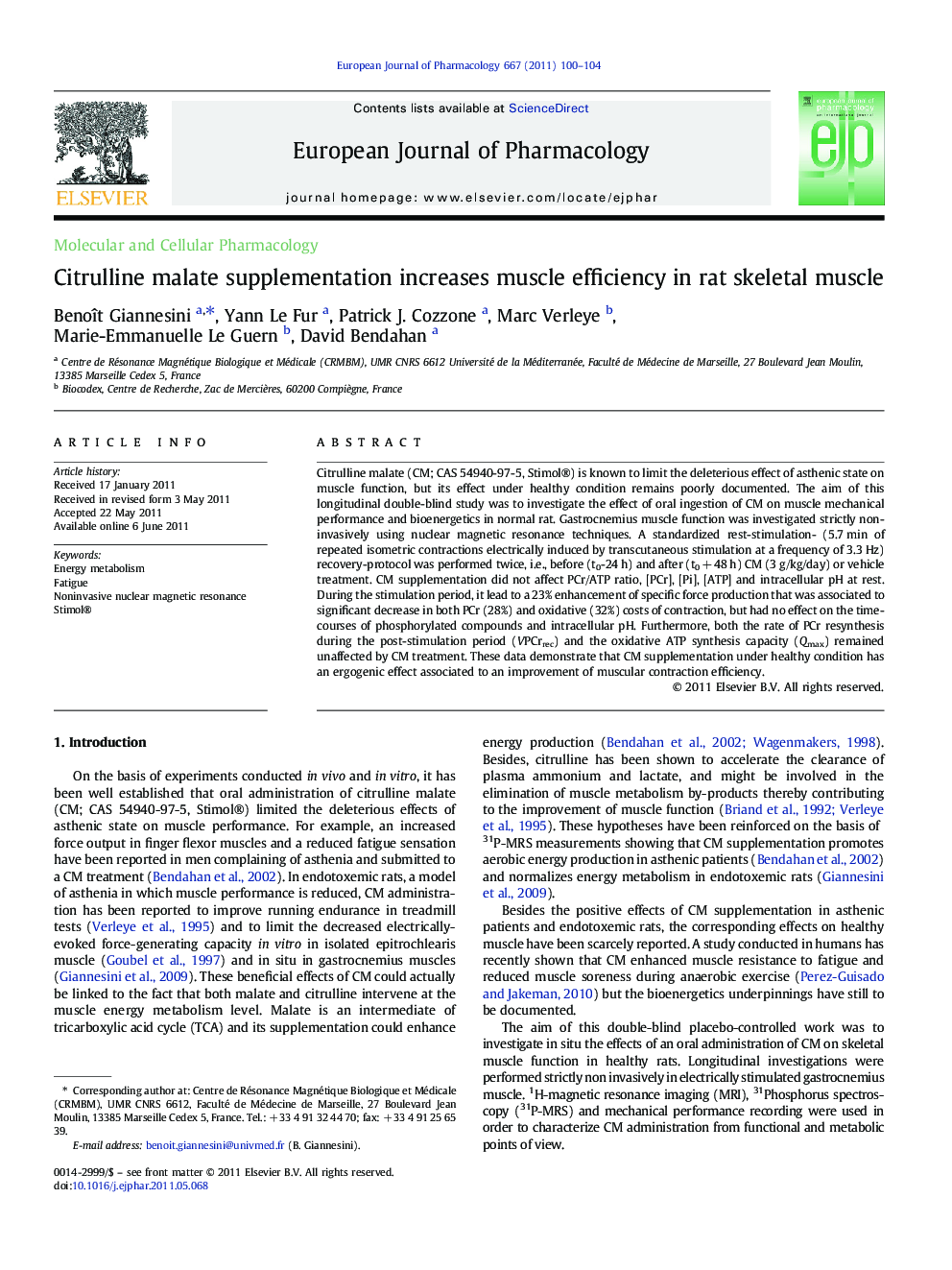| Article ID | Journal | Published Year | Pages | File Type |
|---|---|---|---|---|
| 2532701 | European Journal of Pharmacology | 2011 | 5 Pages |
Citrulline malate (CM; CAS 54940-97-5, Stimol®) is known to limit the deleterious effect of asthenic state on muscle function, but its effect under healthy condition remains poorly documented. The aim of this longitudinal double-blind study was to investigate the effect of oral ingestion of CM on muscle mechanical performance and bioenergetics in normal rat. Gastrocnemius muscle function was investigated strictly non-invasively using nuclear magnetic resonance techniques. A standardized rest-stimulation- (5.7 min of repeated isometric contractions electrically induced by transcutaneous stimulation at a frequency of 3.3 Hz) recovery-protocol was performed twice, i.e., before (t0-24 h) and after (t0 + 48 h) CM (3 g/kg/day) or vehicle treatment. CM supplementation did not affect PCr/ATP ratio, [PCr], [Pi], [ATP] and intracellular pH at rest. During the stimulation period, it lead to a 23% enhancement of specific force production that was associated to significant decrease in both PCr (28%) and oxidative (32%) costs of contraction, but had no effect on the time-courses of phosphorylated compounds and intracellular pH. Furthermore, both the rate of PCr resynthesis during the post-stimulation period (VPCrrec) and the oxidative ATP synthesis capacity (Qmax) remained unaffected by CM treatment. These data demonstrate that CM supplementation under healthy condition has an ergogenic effect associated to an improvement of muscular contraction efficiency.
